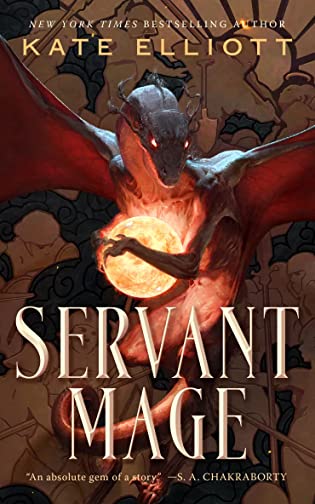 Servant Mage by Kate Elliott
Servant Mage by Kate Elliott Format: eARC
Source: supplied by publisher via Edelweiss
Formats available: hardcover, ebook
Genres: epic fantasy, fantasy
Pages: 176
Published by Tordotcom on January 18, 2022
Purchasing Info: Author's Website, Publisher's Website, Amazon, Barnes & Noble, Kobo, Bookshop.org
Goodreads
Fellion is a Lamplighter, able to provide illumination through magic. A group of rebel Monarchists free her from indentured servitude and take her on a journey to rescue trapped compatriots from an underground complex of mines.
Along the way they get caught up in a conspiracy to kill the latest royal child and wipe out the Monarchist movement for good.
But Fellion has more than just her Lamplighting skills up her sleeve…
In Kate Elliott's Servant Mage, a lowly fire mage finds herself entangled in an empire-spanning conspiracy on her way to discovering her true power.
My Review:
In the immortal words of humorist Lewis Grizzard, “If you ain’t the lead dog, the scenery never changes.” The story of the Servant Mage, Fellian the Lamplighter, shows just how much of a surprise it is to the lead dog – or the ass that thinks they’re in front of you – when one of those dogs in the back gets sick of viewing that ass and decides to take themselves out of the pack.
I’ve carried this metaphor far enough, but it is still the lingering image in my mind after reading Servant Mage.
Fellian is the servant mage of the title, a mage in forced indentured servitude – in other words enslaved – as all mages are in these lands ruled by the so-called “Liberationist Council”. They weren’t really “liberators”, of course, or anything even close to that. They’re a theocracy, a religious tyranny that blames mages for all the ills of the world and has forced them into slavery to keep their spirits diminished and their magic untrained so that they won’t rise up and overthrow the tyrants.
Which makes Fellian ripe for recruitment into a conspiracy to overthrow the Liberationists and bring back the monarchy. All she has to do is rescue a bunch of monarchists trapped in an underground mining complex.
The conspirators assume that Fellian will be grateful for her rescue. And she is. Who wouldn’t be? They assume that her gratitude will extend to her continuing to serve the rebellion as a second class citizen because that’s considerably better than the slavery-conditions she had been forced to serve under. And that’s all they think she’s worthy to be. A second-class citizen, useful to them but not as equal or worthy as themselves.
But Fellian considers a bargain to be a bargain. Once her work is done, she has plans for her own future. As far as the monarchists were concerned, Fellian was a means to an end. Aren’t they surprised to discover that in the end, they were EXACTLY the same thing to her!
Escape Rating B: Let me begin by indulging in my usual complaint about novellas; this book was too short. I know I say that all the time but this time I really, really mean it even more than I usually do.
It’s not that Fellian’s journey from “servant mage” to epic heroine isn’t wonderfully complex – because it is. And it’s not that the cause she is recruited for isn’t worthy even if it’s not exactly perfect – because it is. And it’s absolutely not because the worldbuilding in this story isn’t fantastic – because it certainly is that.
And that’s kind of where the too short complaint comes seriously into play. The worldbuilding feels even deeper than the mining complex where Fellian stages that all-important rescue that she was recruited/strong-armed into performing. We get so much about the way this world works – and mostly doesn’t at the moment – that it feels like we’re at the entrance to something much bigger and greater.
Like a truly epic epic fantasy.
Especially when we view the world through Fellian’s eyes and especially Fellian’s mind. Because Fellian is from a land with a surprisingly egalitarian political structure – a place she can’t wait to get back to once this job is done.
From our view of Fellian we can see that she notes every single microaggression and disrespect that she receives, not just from the people who have enslaved her, but from the people who have rescued her as well.
Which leads right back to paraphrase my opening quote, “If you’re not the lead dog, the view never changes.” Her rescuers are sure they are the lead dogs and that they don’t have to be anything more than barely kind to the ones they perceive as being in the back of the pack. Which makes their reaction all that much more satisfying when Fellian rejects their oh-so-kind offer to help them in their quest.
Their privilege makes them blind, which does make the reader wonder how that will bode for their quest to restore the monarchy. Which may make things better for them, but not necessarily for anyone else. At least not better enough.
All of which leaves the reader with all sorts of interesting and lingering questions. What is going on where Fellian came from? What does she face when she returns? What’s going to happen to the rebellion? Can it possibly succeed and on what terms?
And, and, and…ad infinitum. Not quite ad nauseum but reaching towards there – at least in the sense that the questions left unanswered in this too-short story are downright legion.
In the end Servant Mage read as the beginning of something that might be marvelous and fascinating. But I’d feel a whole lot better about it’s incompleteness if I had an inkling that more were on the horizon.

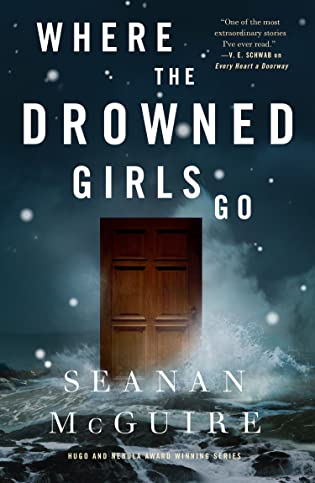 Where the Drowned Girls Go (Wayward Children, #7) by
Where the Drowned Girls Go (Wayward Children, #7) by 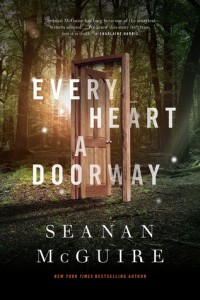 We were introduced to Eleanor West’s Home for Wayward Children in the first book in this series,
We were introduced to Eleanor West’s Home for Wayward Children in the first book in this series,  Cora Miller, whom we met in
Cora Miller, whom we met in 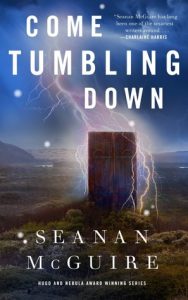 She’s already internalized the messages for girls to be “girly”, flirty and tiny and weak and thin, and has a lot of self-hatred because she’s none of the above. The Whitethorn Institute encourages the children in its dubious “care” to show the worst of themselves, so Cora is bullied and teased for being different – in addition to everything else that’s wrong at Whitethorn.
She’s already internalized the messages for girls to be “girly”, flirty and tiny and weak and thin, and has a lot of self-hatred because she’s none of the above. The Whitethorn Institute encourages the children in its dubious “care” to show the worst of themselves, so Cora is bullied and teased for being different – in addition to everything else that’s wrong at Whitethorn. While this particular entry in the series turned out to be an unexpected readalike for
While this particular entry in the series turned out to be an unexpected readalike for 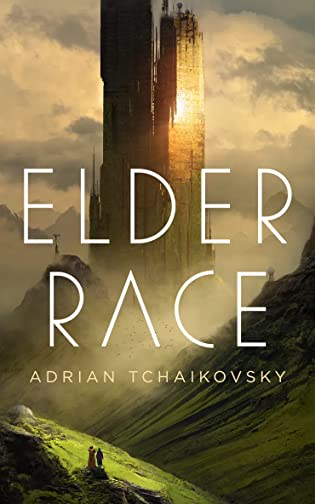 Elder Race by
Elder Race by 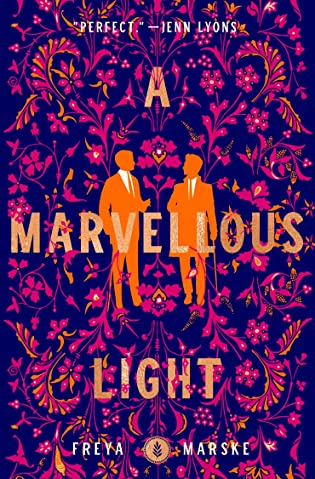 A Marvellous Light (The Last Binding, #1) by
A Marvellous Light (The Last Binding, #1) by 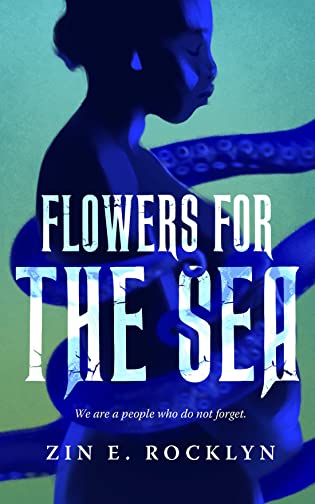 Flowers for the Sea by
Flowers for the Sea by  Escape Rating C: Even after finishing this book, I still had more of a sense of what it was supposed to be from the blurb than from reading – actually listening to – the entire thing from beginning to end. Not that the reader didn’t do a good job, because she most definitely did, but because the story didn’t quite gel for me – or perhaps it gelled in the wrong places.
Escape Rating C: Even after finishing this book, I still had more of a sense of what it was supposed to be from the blurb than from reading – actually listening to – the entire thing from beginning to end. Not that the reader didn’t do a good job, because she most definitely did, but because the story didn’t quite gel for me – or perhaps it gelled in the wrong places.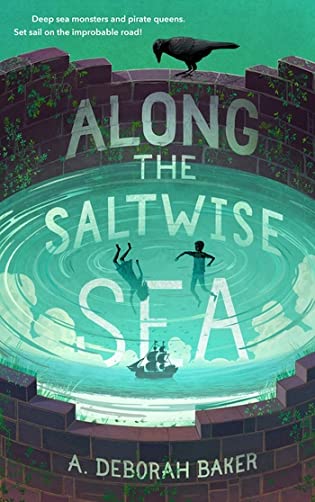 Along the Saltwise Sea (The Up-and-Under, #2) by
Along the Saltwise Sea (The Up-and-Under, #2) by  In their own ways, at the beginning of the first book in
In their own ways, at the beginning of the first book in  But very little happens – at least until the very end when suddenly a lot happens all at once, a bit of how the world works gets explained, and the Improbable Road finds them again and whisks them off to more adventure.
But very little happens – at least until the very end when suddenly a lot happens all at once, a bit of how the world works gets explained, and the Improbable Road finds them again and whisks them off to more adventure.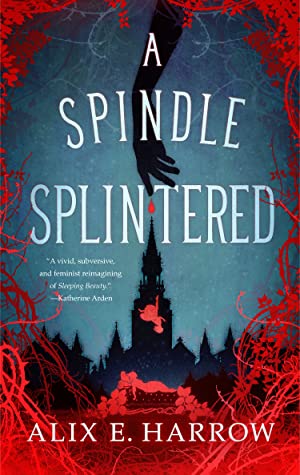 A Spindle Splintered (Fractured Fables, #1) by
A Spindle Splintered (Fractured Fables, #1) by 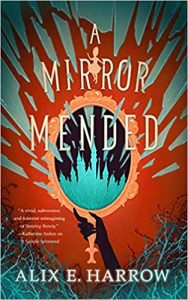 And it’s wonderful – especially when all the Sleeping Beauties carry off the princess and save the day, not just for her, but for each other as well.
And it’s wonderful – especially when all the Sleeping Beauties carry off the princess and save the day, not just for her, but for each other as well.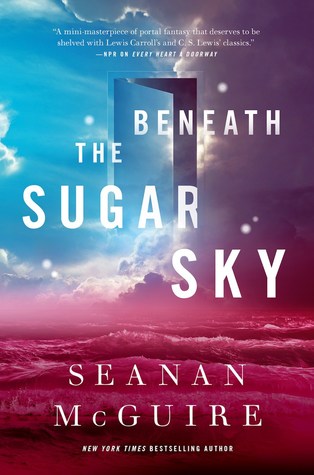 Beneath the Sugar Sky (Wayward Children, #3) by
Beneath the Sugar Sky (Wayward Children, #3) by  I have read the
I have read the 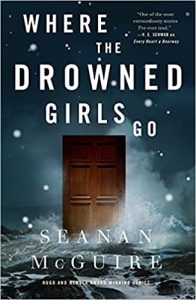 Escape Rating A-: I picked this up now because I read
Escape Rating A-: I picked this up now because I read 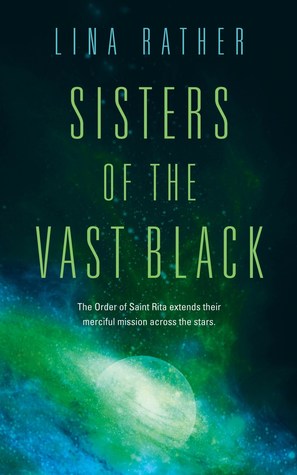 Sisters of the Vast Black (Our Lady of Endless Worlds #1) by
Sisters of the Vast Black (Our Lady of Endless Worlds #1) by 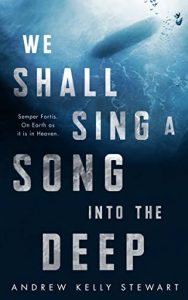 For one thing, the situation isn’t nearly that simple. At first, it seems like a cross between Farscape, the first episode of Star Trek Next Generation, “Encounter at Farpoint”, and the recent
For one thing, the situation isn’t nearly that simple. At first, it seems like a cross between Farscape, the first episode of Star Trek Next Generation, “Encounter at Farpoint”, and the recent 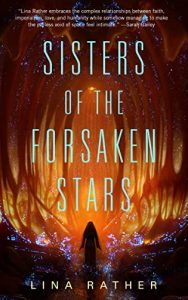 As a gentle story about religious devotion and service to far-flung colonies out in the black, this would have been a lovely thing without going any deeper. But the ambitions of both the governmental central authority and the religious hierarchy push the story to another level, as the nuns have to decide whether to stand up or knuckle under – with hellish consequences either way.
As a gentle story about religious devotion and service to far-flung colonies out in the black, this would have been a lovely thing without going any deeper. But the ambitions of both the governmental central authority and the religious hierarchy push the story to another level, as the nuns have to decide whether to stand up or knuckle under – with hellish consequences either way.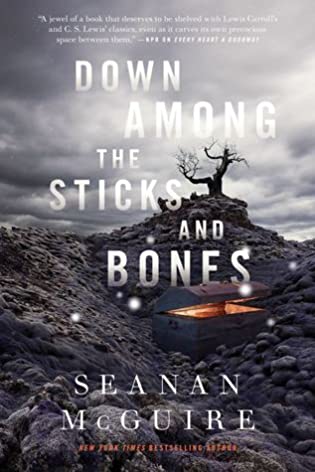 Down Among the Sticks and Bones (Wayward Children, #2) by
Down Among the Sticks and Bones (Wayward Children, #2) by  Escape Rating A-: Jack and Jill Wolcott are just two of the Wayward Children that we met in
Escape Rating A-: Jack and Jill Wolcott are just two of the Wayward Children that we met in